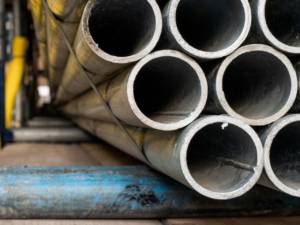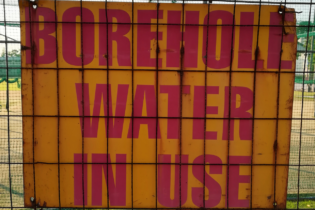Gauteng’s water woes experienced during November and December 2024 have dominated the headlines, highlighting the province’s deepening water insecurity. Widespread and frequent water outages have left communities across Gauteng struggling for days or even weeks without water. The water crisis, exacerbated by aging and unmaintained infrastructure, illegal water connections, and a lack of urgent interventions, has prompted Water and Sanitation Minister Pemmy Majodina to label it a “self-inflicted crisis.”
Deputy Minister of Water and Sanitation David Mahlobo recently revealed a staggering statistic: of the five billion litres of treated water distributed daily by Rand Water, an alarming 2.3 billion litres – nearly half – is lost due to leaks and unmaintained municipal infrastructure. This equates to a nonrevenue water rate of 49.2%, underscoring the urgent need for infrastructure repair and modernisation. Against this backdrop, thermoplastic pipes, such as those manufactured by members of the Southern African Plastic Pipe Manufacturers Association (SAPPMA), offer a crucial solution to reducing water losses and improving infrastructure reliability.Benefits of Thermoplastic Pipes
Thermoplastic pipes are rapidly becoming the material of choice for water engineering and wastewater treatment projects due to their numerous advantages:- Reduced Water Loss: Plastic pipes are less prone to leaks than traditional materials, ensuring more water reaches end users.
- Durability and Longevity: With a lifespan of up to 100 years, thermoplastic pipes require less frequent replacement and maintenance.
- Environmental Benefits: Lightweight and energy-efficient to produce, plastic pipes have a lower carbon footprint than metal or concrete alternatives.
- Cost-Effective Installation: Their flexibility and lightweight nature make plastic pipes easier to transport and install, reducing overall project costs.
- Enhanced Flow Efficiency: Smooth interior surfaces result in lower friction losses, improving the efficiency of water distribution systems.
The Role of SAPPMA
SAPPMA is at the forefront of promoting high-quality, certified plastic pipes that adhere to stringent manufacturing standards. Pipes bearing the SAPPMA mark guarantee reliability, performance, and longevity, making them a vital component of any infrastructure upgrade.
“The importance of specifying quality thermoplastic pipes cannot be overstated. Decision-makers and specifiers must include the SAPPMA mark in their tender specifications to ensure the installation of pipes that meet local and international standards,” urges SAPPMA Chief Executive Officer Jan Venter.







